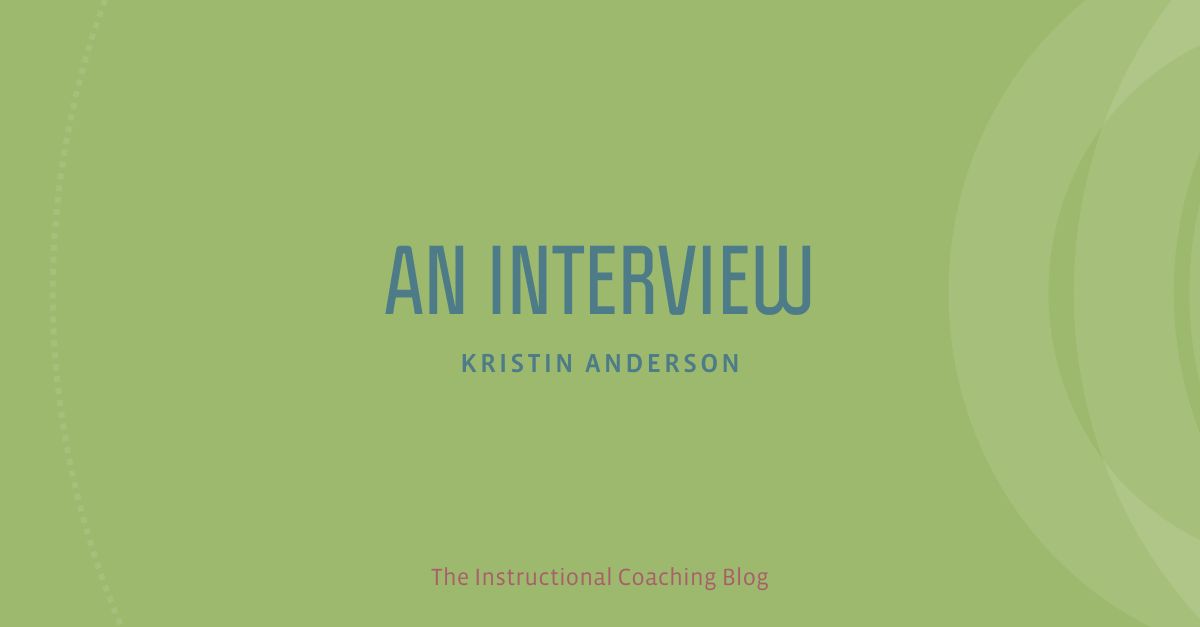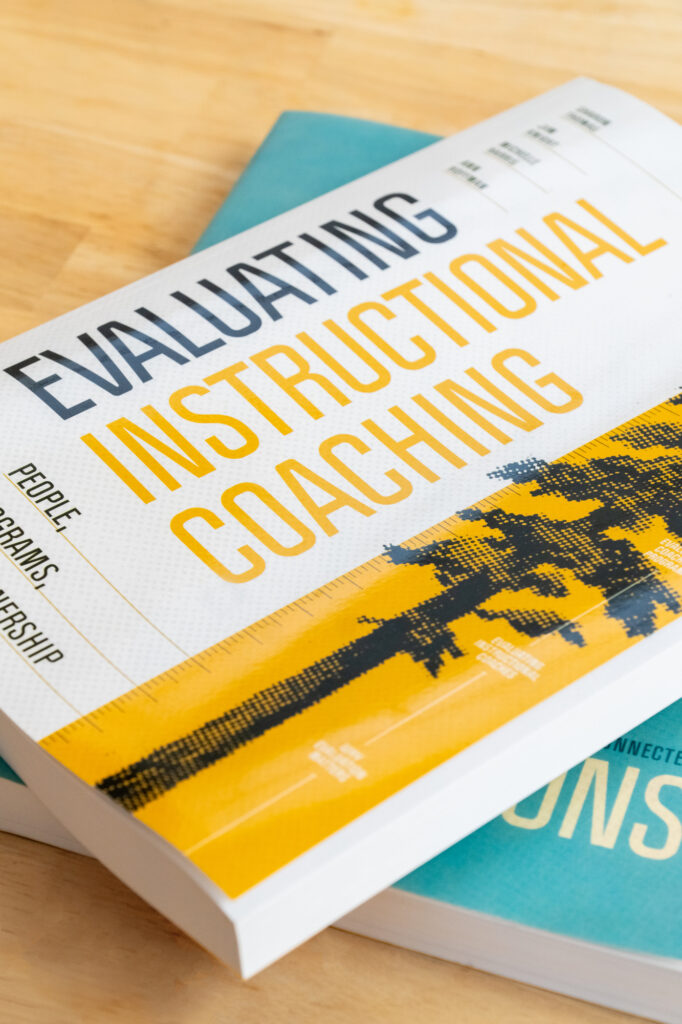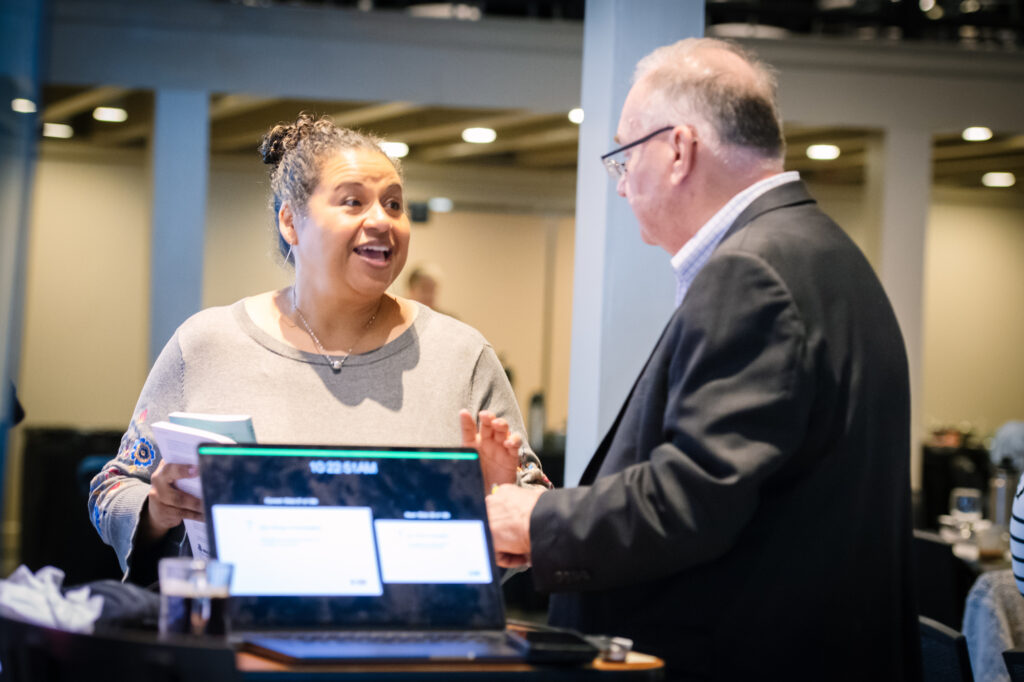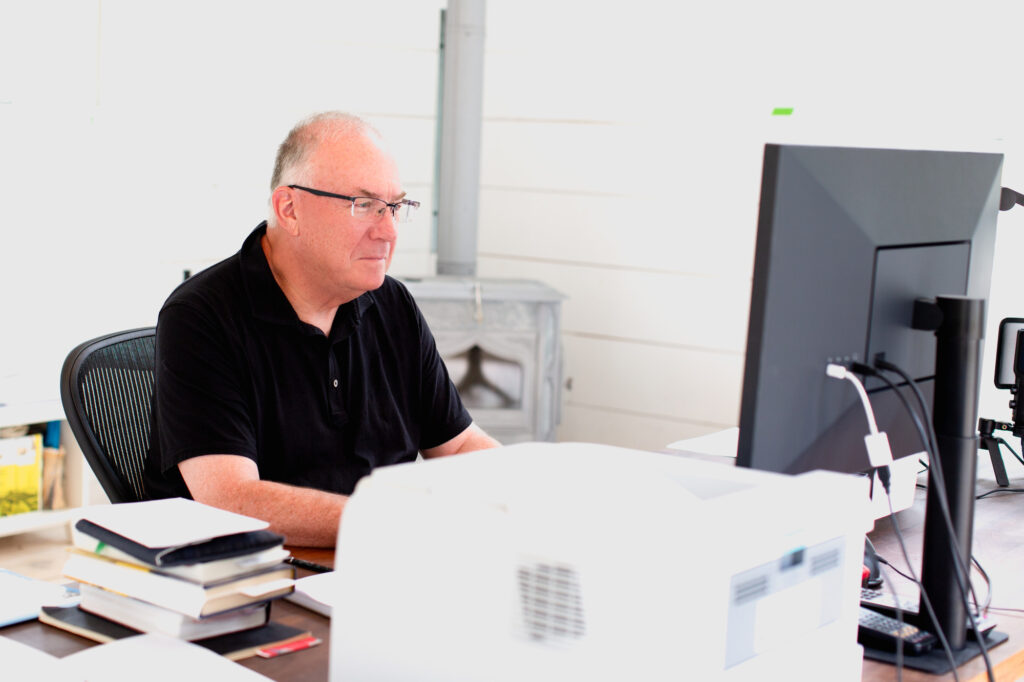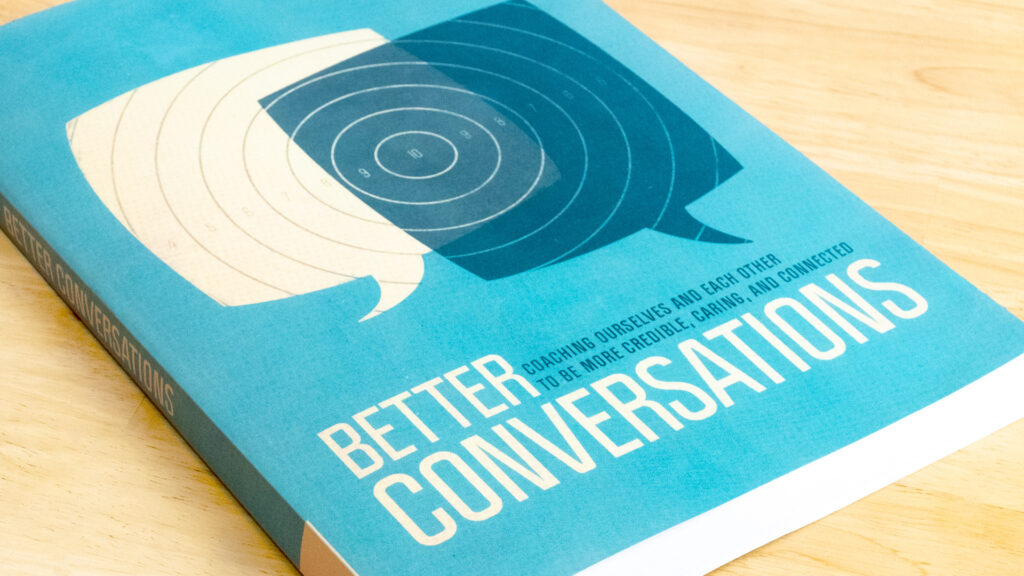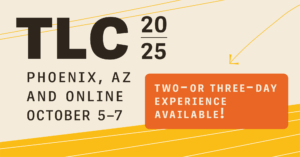Kristin Anderson will be keynoting at this year’s TLC conference, and we’re thrilled. Recently, I had the opportunity to talk with Kristin about her ideas surrounding trust in our school system and the effect it has on teacher effectiveness and student achievement. You can read the full interview below. In the weeks leading up to our annual conference, I’ll be posting interviews with experts like Kristin who will be presenting. I hope they inspire, educate, and provoke new thinking. You can keep up with the interviews by subscribing to this blog.
(Jim) Tell me what you have been working on recently and how it connects with TLC.
(Kristin) I’ve been incredibly interested in the behaviors of adults in education systems and how those behaviors either sustain or take away from what we are trying to do for kids. Specifically, I’ve been interested in two areas: (a) the levels of trust that exist between the adults in our schools and (b) the effect they have on teacher effectiveness and student achievement. According to John Hattie, despite all the research and knowledge we have amassed over the years on effective teaching/learning, if we don’t have considerable amounts of trust, none of it is possible to implement and sustain. For example, it is impossible for students to own their own learning and give an effective 1.44 (effect size), that is, three and a half years’ growth over a years’ time, if there is no trust in the classroom because they won’t take risks, they won’t be brave.
While we know that is true with kids in the classroom, it is also incredibly true with the adults within the system. When adults do not feel like trust exists, they also don’t take risks; they don’t feel like they can thrive and flourish, that they can see what they are capable of or that they can push themselves to try different approaches and techniques. Trust is the basis of whether we are going to be able to implement anything we want to focus on, and to continue to be better versions of ourselves every day. Associated with trust is the notion of self-efficacy. For example, does every adult in the building believe, individually, that they can meet or exceed the needs of all of the learners in their care? And do they believe that they can solve any problem that comes their way? Meaning that they might not have all of the answers and all of the tools and resources, but they know where to get answers because they believe in their ability to solve problems.
I believe that trust and self-efficacy are developed in very similar ways. If we want a trustworthy system or a system that is collectively efficacious, we must begin at the level of the individual.
(Jim) Tell me why self-efficacy is important and tell me about collective efficacy and how the two fit together.
(Kristin) The research shows that it’s impossible to be part of a collective that believes in that collective’s capabilities, for example, a school’s ability to reach its students and to solve all of the problems that face them, if the individual members of that collective don’t believe that about their own practice. That is, unless the individuals within the collective believe all those things about and within themselves, they cannot contribute that to the whole. It would be a wonderful world if every teacher were able to identify and then say, “You know what? I’m frustrated right now because I don’t believe in myself and, therefore, I don’t know if I can achieve the success that I would like to.” Instead, those feelings often manifest themselves in withdrawing, blame-placing, or complaining about the other adults in the building, or student background or behavior. But when we look inward and tend to these matters, then collectively we can be strong.
(Jim) Why is collective efficacy so important? What is it?
(Kristin) In John Hattie’s Visible Learning research which analyzes what works best in teaching, learning, and leadership from over seventy thousand studies, he has found that collective efficacy yields a 1.57 effect size, which is the equivalent to approximately four years’ growth over one year’s time for learners, and is now the number one effect size in his extensive body of research. Collective efficacy is the belief that together as a whole, every adult in the building believes that every adult in the building can realize success for every learner in the building. They know that if there is a problem, they have the expertise within the building to solve it. They know that they have the capabilities to embrace the challenge, overcome challenge and see new variations of themselves consistently. In fact, collective efficacy or self-efficacy is not possible if challenge is not present. It is developed through overcoming hardship and seeing what we are capable of, or overcoming quandaries or enigmas together with feedback. Efficacy thrives on feedback being a two-way street between every stakeholder in the system. It thrives on the ability to question, to be vulnerable, to remove fear of failure, and to be able to put our data or our video of our teaching practice or our seemingly unsolvable situation in front of others and be transparent and say, I need help. The teams that practice this are dynamic. They’re fluid. They are constantly making mid-course corrections. They are always willing to look at the evidence and to determine a where-to.
Hattie’s research also established that self-efficacy for the student is a 0.90 effect, or approximately two years’ growth over one year’s time. That is a students’ belief that they can accomplish anything, can solve any problem in front of them and can meet their goals and outcomes. The research by Megan Tschannen-Moran and by Bandura and a whole host of others suggests that students cannot develop this level of self-efficacy if their teachers are not highly efficacious and if the system as a whole is not collectively efficacious.
(Jim) Why is self-efficacy important for a coach? First off, for the coach just doing the work of being a coach. How does self-efficacy factor into that? Second, how does knowledge of self-efficacy help a coach to coach?
(Kristin) Fundamental to self-efficacy is the belief that “I can do my job and I can do it well.” Coaches need that belief in order to support educators, who also need that belief. If we can know that the self-efficacy of a student is absolutely supported and built by the emotional persuasion that the teacher causes in the classroom, then we could also say that if coaches master that experience for their coachees, it allows those teachers to step out and to want to take risks.
This is also where trust is incredibly important. When trust exists, that belief is kindled and fueled and as a result the educator is trying new things and experiencing what they are capable of. They are impassioned by success. So the coach fosters an environment where self-efficacy can flourish so that teachers can step out and see what they are capable of, which is essential for student achievement. When a coach is coaching and empowering teachers’ self-efficacy and seeing changes in student results, that’s the fire that is fueled ongoing; the outcomes and impact are long lasting. Coaches themselves cannot provide that empowerment if they themselves do not believe in their capabilities and what they can do. So it’s important for instructional coaches to have a system for constantly reflecting and visiting their own feelings of self-efficacy and coming up with a plan to build that self-efficacy.
(Jim) What are some of your key learnings over the past few years?
(Kristin) Over the past few years, I’ve been equally interested in self and collective efficacy and trust, and the relationship between the two. I’ve had the privilege to go systems all over the world and help them see what possible solutions are to their system needs, and I see the same pattern; if trust doesn’t exist within the adults in the building, it is almost impossible to implement effectively. In your book, Better Conversations, you interview a woman who is an instructional coach in Texas. She says, you cannot be an effective coach if you do not have the trust of the teachers. They need to see you as the person who is their support system. My job is to support and inspire teachers to be learners. I can’t do that if I don’t have their respect and their trust.
A lot of people see trust as a soft skill. But the reality is that we all need to be on a journey to becoming a little bit more trustworthy every single day, no matter how much we perceive ourselves to be trustworthy. Trust is a multi-dimensional disposition or value that requires deliberate practice and deliberate planning in order to ensure that it is thriving. I very rarely see a school improvement plan that purposely embeds trust and trust-building among the adults or within the classroom as part of the ongoing goals. We always want to monitor increases in reading or mathematics, because that is what is tested, but we could work on that goal all year long and try every strategy, yet if trust doesn’t exist, we will always hit a wall. There are ways that systems can build trust and, again, it starts with the individual. As Stephen Covey shares with us, trust starts to form within, and if we can trust ourselves, then we can enter trustworthy relationships with another, such as our coach. And, if that relationship is trustworthy, we can have a trustworthy relationship with a team, and if that relationship is trustworthy, we can bring trust to the entire school, then the community, and so forth.
(Jim) What are some ways that you can build trust?
(Kristin) There are a few tactical ways educators can build trust. The first is to identify what barriers to building trust currently exist. One of the most common barriers is fear. Our fear gets in the way of investing in relationships with each other. If you believe that fear is one of the barriers, I encourage you to make a list of what fears exist within the system and think about the way they are manifest, and then begin to address them head on. In your book Better Conversations, you write that there are 6 beliefs and 10 habits to achieving better conversations. The tenth habit is trust building, and you list a number of ingredients that are necessary for trust to thrive: character, credibility, reliability, confidence, warmth, and stewardship. So to answer your question, if we can address the barriers to trust we’ve identified, then we can add some of these ingredients in order for trust to thrive.
The one that captures my attention is stewardship, because that is not something people write about much. It’s the notion that if we are good stewards of something, we tend to it with deep care, deep respect and diligence. Another of the critical ingredients you mention is reliability. Reliability is often associated with consistency, and is one of the absolute most critical ways of building trust. But how do we build reliability in being more trustworthy when our environments are chaotic? In a chaotic world, I think we need clear clues to practice consistency in our own lives to build our trust. If you are a school leader, for example, you may need a cue to go and be in classrooms because otherwise this important part of your job may be buried beneath the need to manage all the other things in your day. Whatever the case is, practicing consistency doesn’t just happen; it must be deliberate and planned for.
Similarly, there is a deliberate time to increase trust in self and increase the personal belief that you can do things you never thought you could do and that you can meet the needs of all your learners. If you don’t trust yourself, the implication is that your self-belief is not very high either and both of those things absolutely get in the way of having an effective coaching relationship for increasing student achievement.
(Jim) Since our conference theme is courage, please tell me a little bit about how your ideas about trust and self-efficacy relate to courage.
(Kristin) We talked about how students’ self-efficacy is directly correlated to teachers’ self-efficacy, and that students’ trust in their teachers is directly correlated to the amount and level of trust that exists in a building or a setting. Both are necessary for learners to embrace the challenge to see what they are capable of- to be courageous in that pursuit, and to thrive.
One of the things that saddens me as I visit schools is that we seem to have such incredibly well-intentioned people working very hard, but they are feeling a sense of demoralization because, despite their hard work, they often cannot see the impact that they are having on kids. Daniel Goleman, the godfather of emotional intelligence, interviewed hundreds of thousands of teachers and he asked them “what are your biggest stressors in the field?” The number one stressor was classroom management, failure to feel as though they could effectively manage their classrooms. This is directly tied to self-efficacy, because if I don’t believe that I have positive procedures and routines that can make my classroom thrive, then I cannot increase student achievement or be efficacious for my students to go out on their own.
The second greatest stressor was the notion that we never feel like we have enough time. The third biggest stressor was that teachers feel like they don’t make decisions. I think teachers don’t feel like they can make decisions about things that impact what is most important to them. As a result, I would love for us to be able to courageously empower teachers to see what they are capable of and to see new dimensions of themselves and what they can do within these constraints, to breathe life into the profession. Right now, specifically in the United Sates, we are seeing that 50% of teachers in their third to fifth year are leaving the field. A lot of people say that is because teachers don’t make enough money, but I don’t accept that explanation. Teachers are incredibly smart individuals, and none of them entered the field thinking they were leaving and that they would be rich. Instead, I am seeing a trend of teachers feeling overwhelmed and powerless, wondering if they are making an impact or a change in student behavior and achievement. If we can equip teachers to believe in themselves through the process of coaching, the evidence shows that students will develop self-efficacy which can double the speed of their learning and, ultimately, change the direction and the course of some children’s lives. So, what we believe about ourselves matters extensively and I would love to see and discover more of the light that we can shine on what we are capable of achieving with that domain.
(Jim) Tell me what you are going to present at TLC.
(Kristin) I am presenting a session on Unleashing Your Personal Power, where we will delve into what decades of research from multiple sources clearly demonstrates; that the educator is the single greatest influence on student achievement, and that what we do instructionally supersedes anything a child may come to school with. If we truly choose to own this well-proven and empowering fact, then we must also embrace the notion that educators are indeed infinitely powerful. What if we truly tapped into and released that force? What if we realized what we are truly capable of? We will look at the many benefits to fostering belief in our individual capabilities, and strategies and tools to use to increase and embed self-efficacy, in order to fully unleash our personal power.
